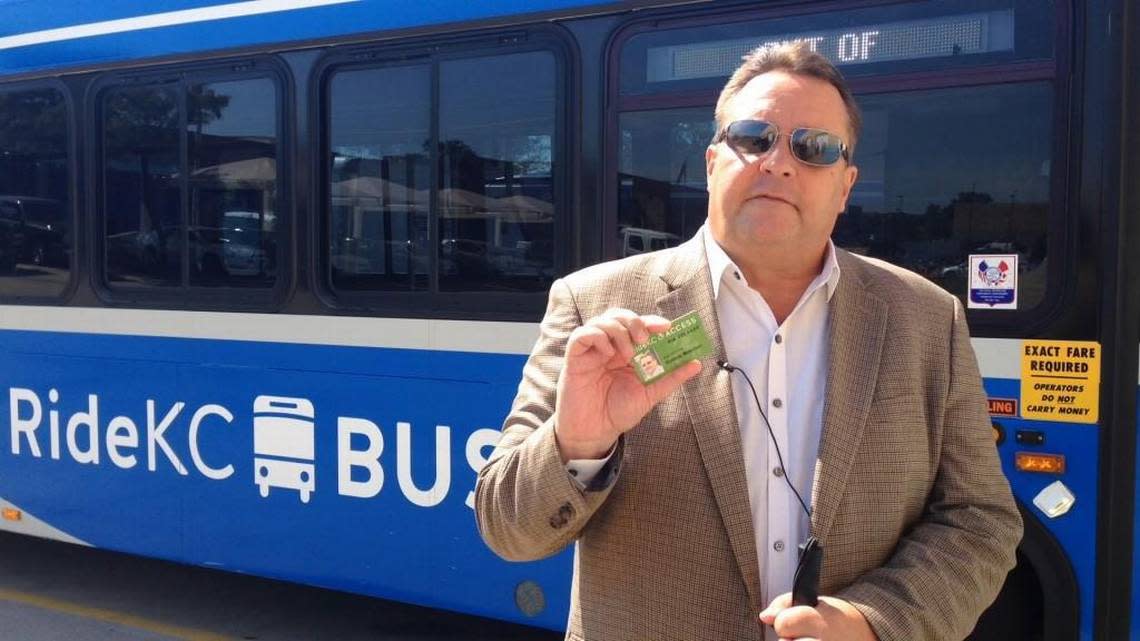KCATA leadership turmoil distracts us from what Kansas City needs: better bus service

Ongoing turmoil over the leadership of Kansas City Area Transportation Authority CEO Robbie Makinen is more evidence the city’s bus service is in crisis.
Kansas Citians deserve public bus transit that is safe, reliable, convenient, comfortable — and free. Sadly, those goals continue to slip. Users report erratic service throughout the day. Routes are mysteriously canceled. Potential riders say stops are too far away to be of real use.
Those problems must be addressed and rectified, or the crisis will get worse.
The furor over Makinen’s direction of the department appears to be the result of a toxic mixture of politics, poor performance and his ebullient personality. That’s unfortunate. Makinen and his board have helped raise the profile of the city’s bus service, including the start of the ZeroFare KC program, and he deserves thanks and credit for that work.
At the same time, the bus service needs to be better. This crisis should serve as a starting point for a fundamental review of the KCATA’s oversight of bus transit, including a new look at its budget and the quality of its service.
Makinen seems to have complained that City Hall was too fond of raiding bus funding sources for other city needs, including streetlight installation. We must be clear: Diverting money from local bus taxes is inappropriate and must come to an end. Kansas Citians want to pay sales taxes for the bus, and that’s where the money should go.
At the same time, there is little indication the bus service’s problems come from a lack of money. KCATA was expected to get more than $53 million in CARES Act pandemic relief funds from the federal government, and other federal grants are likely. That money should have helped maintain and improve bus service over the past two years, even as local revenue slumped.
“They’ve got plenty of money,” City Manager Brian Platt said Thursday on “4Star Politics,” a joint production of The Star and WDAF-TV. “They’ve got two types of tax revenues that they’ve got coming in. They’ve had a huge amount of federal funding and stimulus dollars to plug all the gaps, and yet we’re still seeing delays in service.”
In a typical year, KCATA spends more than $100 million. It cannot ask for unlimited funding from local taxpayers, when other pressing needs — public safety, health, education — remain unmet.
Despite whispers to the contrary, free fares are not the cause of spotty bus service, or KCATA’s perceived budget woes. The fare box generated little revenue for the service, and — as Makinen is happy to point out — travel by bus is safer and more convenient without fares.
We supported fare-free buses when they were first proposed, and we support them now.
We are concerned that Makinen spends far too much time exploring the outer reaches of KCATA’s authority as a developer and economic engine for the city, at the expense of actually focusing on the bus. He’s often talked of using the KCATA’s power to spur development by offering incentives for builders.
Why? That’s not what Kansas City, and the region, want or need from their bus service provider. When the KCATA is more interested in a downtown baseball stadium than a bus stop on Prospect Avenue, the community suffers.
That path forward seems obvious: 1. City Hall gives the bus service the tax money approved for transit. 2. The KCATA runs the buses, and does a better job. Everyone stays in his or her lane.
What might better bus service look like?
Regular routes, with more frequent buses that arrive and depart on time. Clean bus stops, and buses. Easily understood connection patterns. Service that compliments the streetcar (and vice versa). Oh, and buses filled with people.
The 2026 World Cup in Kansas City will provide an important incentive for bus service improvements, since mass transit will be critical when the world arrives at our door. There is a timeline for better buses.
But we shouldn’t get better bus transit simply for the World Cup. Kansas Citians should get robust public transit because they want it, they’ve paid for it, and in an era of climate change they will need it.
There’s enough blame to go around for service shortfalls. The Makinen dispute must be the catalyst for improvements, and soon.
